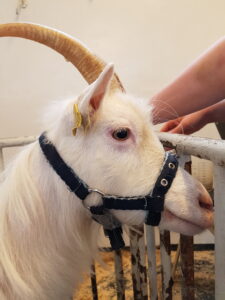
Epigenetic is currently recognized as one of the most exciting field of the biological sciences, advocating for a unified theory to expand our understanding of how genetic and epigenetic processes shape the phenotype.
RUMIGEN will provide scientific advances towards understanding and accurately predicting phenotypes that extend the state-of-the-art in cattle and other closely related species. In addition, since epigenetics can be artificially modulated to fully express the genetic potential, societal concerns need to be assessed.
In the context of climate change and transition towards more sustainable farming systems, efficient, sustainable and socially acceptable breeding goals and programs, innovative genomic prediction methods and precision management tools are urgently needed to produce robust cattle that efficiently manage the trade-offs between production and adaptation to extreme climate conditions (heat stress, reduced feed qualities and quantities, and disease pressures). In this context, sustainable breeding could be defined as the selection of healthy animals that fit better into the local environment, are able to cope with environmental changes, produce high quality products combined with a low environmental footprint and provide sufficient incomes to farmers, without compromising the ability of future generations to meet their own needs and selection objectives.
Therefore, RUMIGEN aims to deliver breeding programs with an improved sustainability for both cosmopolitan and local breeds in a diversity of environmental conditions, taking into account trade-offs between breeding objectives, preservation of genetic diversity and available technologies (including innovations developed in the course of the project). It will also lead to the development of new management indexes for precision farming combining genomic, phenotypic and epigenetic information. This aim will be achieved through dedicated scientific activities, as well as a multi-actors-driven approach, taking into account societal acceptance, feasibility and overall resource and economic efficiency.
